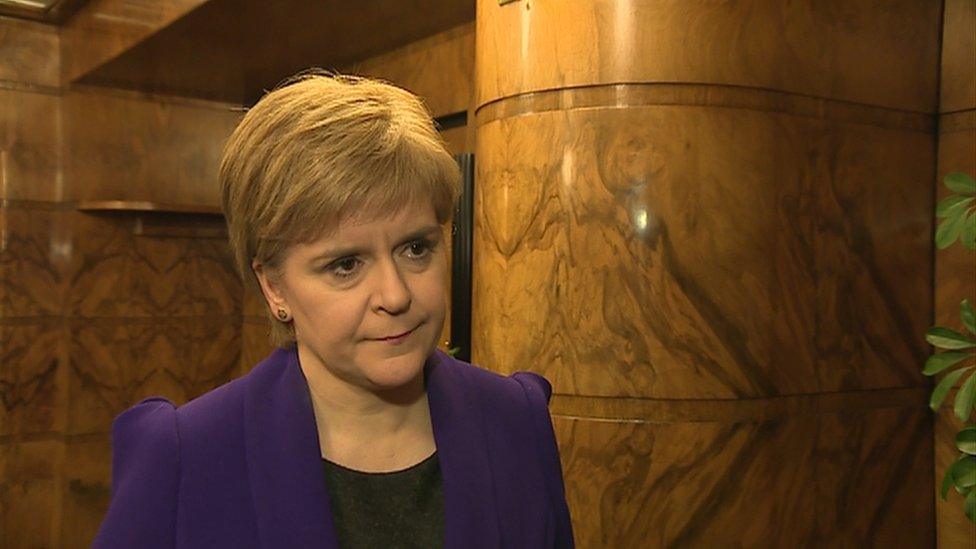Scottish independence: Sturgeon to set out 'next steps' in April
- Published
- comments
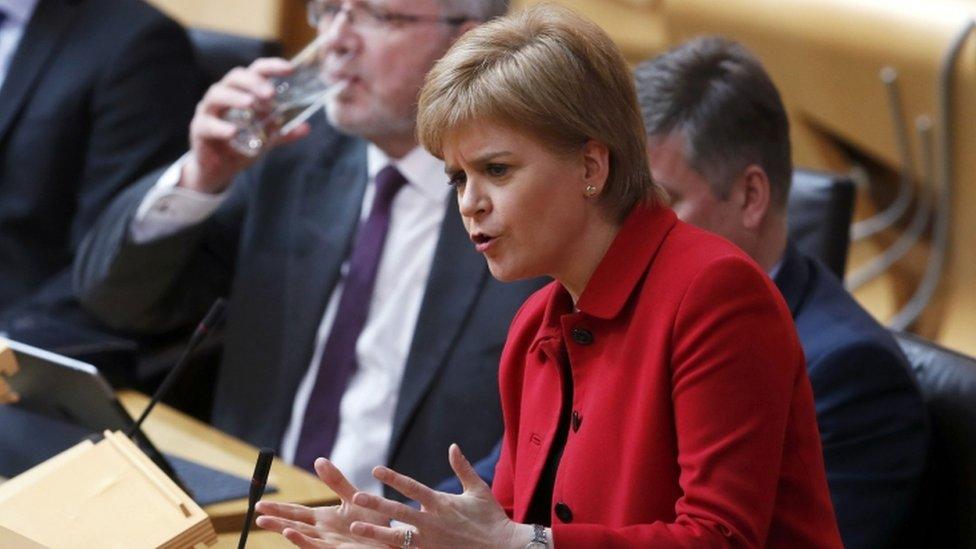
The first minister was speaking as MSPs prepared to vote on whether to seek a second referendum
Nicola Sturgeon is to reveal next month how she will respond if the UK government continues to block calls for an independence referendum.
The first minister was speaking ahead of MSPs voting on whether to seek permission for a referendum to be held.
Ms Sturgeon's minority SNP government is expected to win the vote with the backing of the Scottish Greens.
But the prime minister has already said she will block a referendum until after the Brexit process is complete.
Theresa May, who met Ms Sturgeon for talks in Glasgow on Monday, has repeatedly insisted that "now is not the time", and that all efforts should be on securing the best Brexit deal for the whole of the UK after Article 50 is triggered on Wednesday.
Ms Sturgeon is asking for Holyrood's backing to seek a referendum between the autumn next year and spring 2019 - but has indicated she would be willing to negotiate the timing.
She told MSPs that she was not seeking confrontation with the UK government, and only wanted "sensible discussions".
The first minister added: "I hope the UK government will respect the will of this parliament. If it does so, I will enter discussion in good faith and with a willingness to compromise.
"However, if it chooses not to do so I will return to the parliament following the Easter recess to set out the steps that the Scottish government will take to progress the will of parliament."

Analysis by Sarah Smith, Scotland editor
It used to be received wisdom in Scottish politics that if Westminster tried to deny a Scottish referendum it could easily backfire and stir up support for independence.
But the unionist parties are confident there is no great public demand for another vote - other than among people who are already committed nationalists.
Opinion polls suggest people are split fairly evenly, about 50/50, on whether they want another vote. And it tends to be Yes supporters who say yes to another referendum and No voters who say no, not now.
The great divide in Scottish politics over the question of independence may only be solidified by this current debate over whether to re-run the 2014 referendum.

The two-day debate on the issue started last week but was suspended as news of the terror attack at Westminster emerged.
MSPs will be asked to mandate the Scottish Government to take forward discussions with the UK government on the details of a section 30 order, the mechanism to transfer the legal powers for a vote.
If the vote passes, Scottish Brexit minister Mike Russell told the BBC's Good Morning Scotland programme that a letter would be sent to the UK government which will "lay out how we intend to fulfil the mandate of the Scottish Parliament".
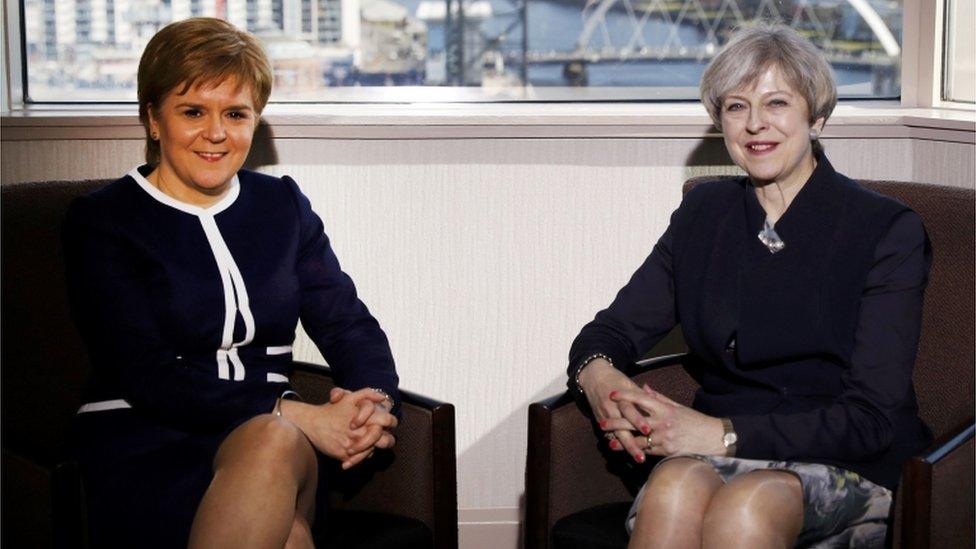
Nicola Sturgeon and Theresa May met a hotel in Glasgow on Monday
Scottish Conservative leader Ruth Davidson and her MSPs are expected to vote against the motion alongside Labour and the Lib Dems.
However, the government is expected to win the vote, with the six Green MSPs joining the SNP's 63 to give them a comfortable pro-independence majority in the 129-seat parliament.
Ms Davidson told the debate that the first minister wanted to push for independence regardless of how good a Brexit deal the UK negotiates.
She added: "Last week, in what was a disgraceful episode, we were shouted at from the SNP benches we were frightened to debate independence.
"We're not frightened but we are sick of it, and most people in Scotland have had enough too."
'Clearly incompatible'
Scottish Labour leader Kezia Dugdale said Scotland had voted "decisively" to remain in the UK in the 2014 referendum, and warned the first minister: "we are divided enough, do not divide us again."
But Andy Wightman of the Scottish Greens argued that the results of the 2014 independence referendum and last year's EU referendum were "clearly incompatible without a further choice".
Speaking during a visit to Scotland on Monday, Mrs May said: "My position is very simple, and it hasn't changed. It is that now is not the time to be talking about a second independence referendum.
"That's for a couple of reasons - first of all, now is the point when we're triggering Article 50, we're starting the formal negotiations for leaving the European Union.
"Now is a time when we should be pulling together, not hanging apart. Pulling together to ensure we get the best possible deal for the whole of the UK, including the people of Scotland.
"And I think it would be unfair on the people of Scotland to ask them to make significant decision until all of the facts are known, at a point where nobody knows what the situation is going to be."
- Published27 March 2017
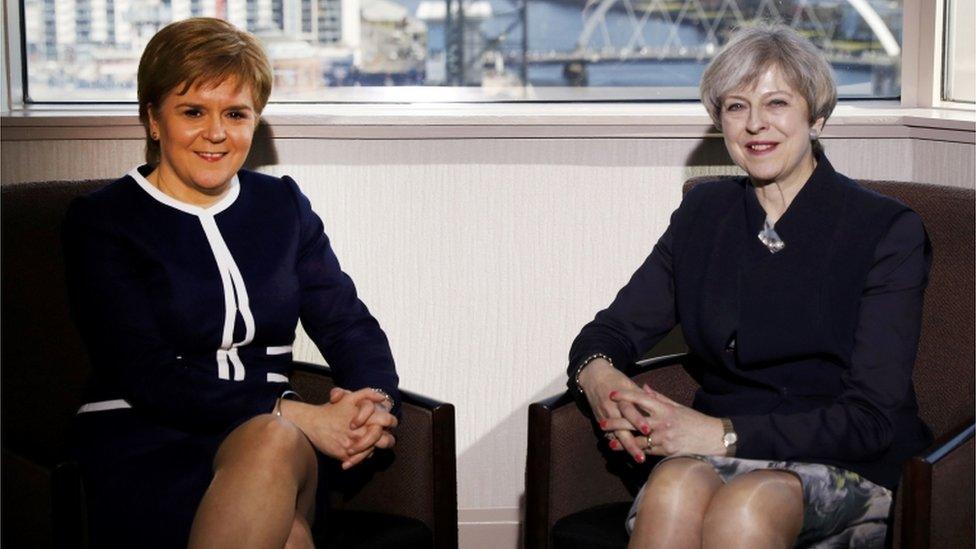
- Published23 March 2017
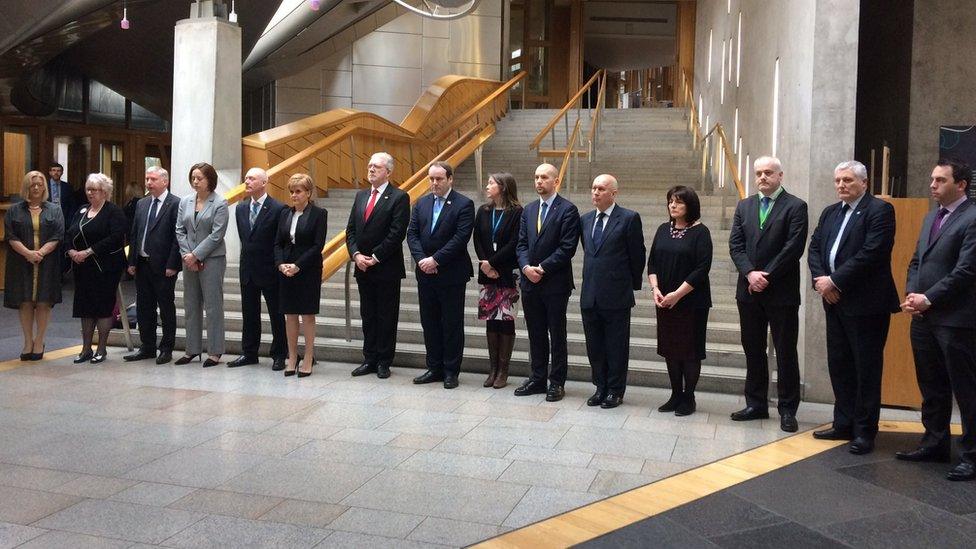
- Published22 March 2017
